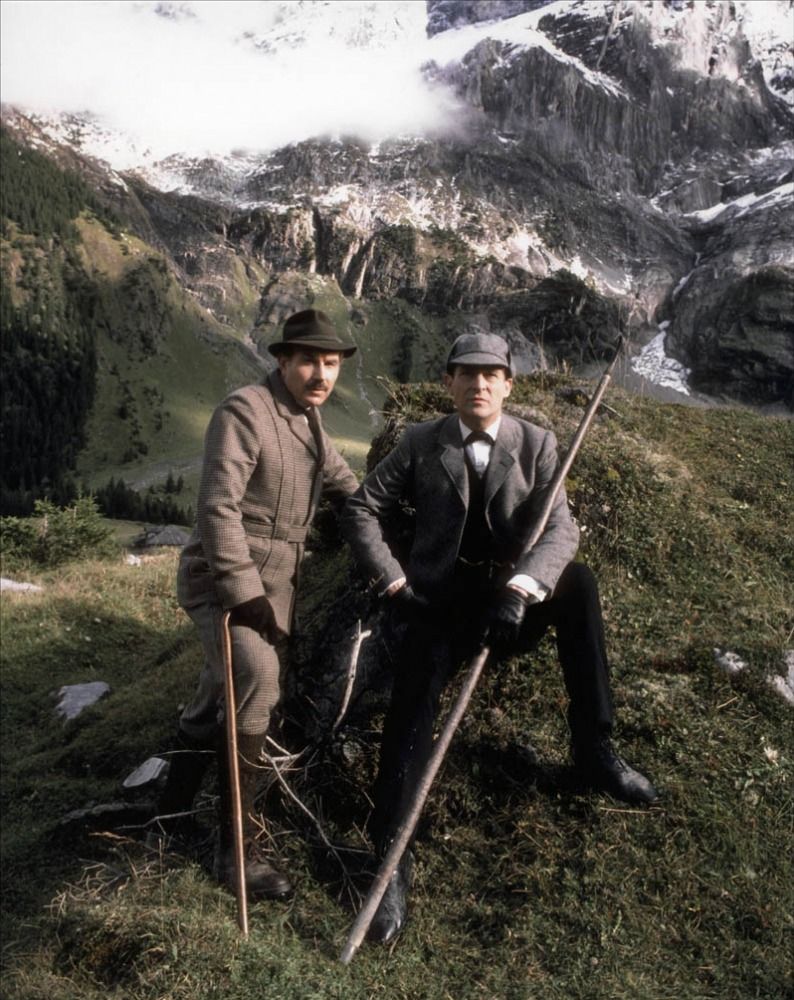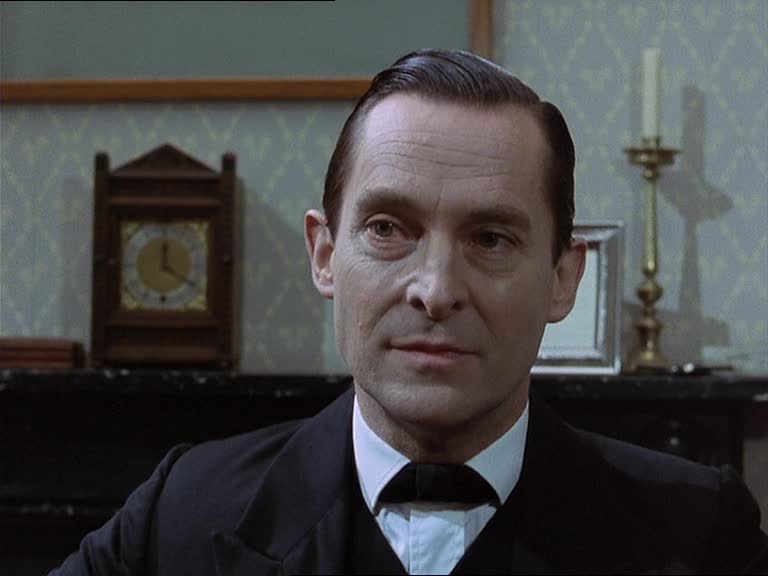Warning: Contains Sherlock Holmes series spoilers and extreme geekery

I am feeling nostalgic this evening, so I thought I would write a post about something dear to me, and exceedingly trivial, that I don’t think I’ve told anyone before. 😆 Simply this—the connection between the Korngold violin concerto and the Sherlock Holmes series. Yes, these are the deep, dark secrets of Classics Considered.
The Amateur Violinist with a Stradivarius
For those who don’t know, Sherlock Holmes is maybe the most famous violin-playing character in classic literature. Watson lists it as one of Holmes’s traits when he first meets the 27-year-old in A Study in Scarlet (1887). The unofficial consulting detective’s fondness for the violin comes up again and again throughout the series. It is one of his more charming habits (albeit less infamous than the tobacco and drugs).

While the Sherlock Holmes of the books played Mendelssohn and other favorites of the late Victorian era, we moderns get the added benefit of TV scores. For example, the actor Jeremy Brett “played” the last movement of the Beethoven concerto in “The Adventure of the Resident Patient” (Granada Television, 1985). But composer Patrick Gowers also wrote his own violin theme for Holmes, which fits beautifully into the late Romantic era and the mystery genre. It features in the opening credits, and Holmes is seen to play it now and then.
Take a good listen at the first lines of the violin solo (it comes in at 0:10, but don’t skip the horse hooves at the beginning 😀 ):
Compare it with BBC’s Sherlock “Waltz for John and Mary” (composers David Arnold and Michael Price). The show is a 21st-century take on Holmes, but for this waltz, the sound is more traditional/classical, intended to be played at John’s wedding.
When you hear the two songs side-by-side, it’s easy to notice the intervals at the beginning resemble each other very strongly. Not unique by any means, but it’s interesting how similar they happen to be.
Now what does this all have to do with a guy named Korngold? Bear with me through a little more exposition…
Reichenbach Falls—the End and the Beginning
The Sherlock Holmes series is very long (56 short stories and 4 novels), and from what I’ve heard, Doyle became as tired of writing Holmes as many actors have of playing him. With that in mind, a highlight of the series is the collection of short stories leading up to and including “The Final Problem” (pub. 1893), in which takes place the heroic last stand of Sherlock Holmes. In this story, Holmes wrestles the criminal mastermind Professor Moriarty to the latter’s vicious death in the Reichenbach Falls. Holmes survives but leaves England and even his best friend Watson, to go into hiding from Moriarty’s surviving henchmen.

We don’t know all the details of what happened during Holmes’s absence, except that he traveled around incognito and Watson’s wife likely passed away. So this was very much a period of mourning for Watson and, to some extent, Holmes as well. Fun fact: when I first read “The Final Problem” at the tender age of 9 or 10, I really thought he was gone, and it absolutely broke my heart.

Finally, after three years (what is known in the fandom as “the Great Hiatus”), Sherlock Holmes returns to London dramatically to take down the last villains of Moriarty’s gang. (Epic.) Everyone is happy, including Doyle’s fans, and the series continues on as before. It could be said, however, that this coupling of plot twists was what made the Sherlock Holmes fandom, even as the first one on its own almost destroyed The Strand Magazine (yes, that Strand Magazine).
The Strand’s reading public was outraged by what they considered the premature death of a beloved character. Over 20,000 people cancelled their subscriptions, and the magazine nearly went under. Forever after, The Strand’s staff referred to Holmes’s death as “the dreadful event.”
from Discovering Sherlock Holmes (Stanford University)
Doyle eventually reversed Holmes’s death in “The Adventure of the Empty House,” but not until 1903. A cliffhanger—literally!

Korngold’s (Holmesian) violin concerto
But back to Korngold. Erich Korngold. You might know his music from The Adventures of Robin Hood, the classic film starring Errol Flynn, Olivia de Havilland, and Basil Rathbone when he was still typecast as villains (though looking considerably more dashing than Flynn). Though now best known for his film scores, Korngold also wrote a very beautiful violin concerto—a piece for violin solo & orchestral accompaniment, usually in three parts called “movements.”
Movement 1, Moderato nobile. This magnificent opening uses similar intervals to the Sherlock Holmes themes posted above. Which is just a pretentious way of saying… this piece makes me think of Holmes, specifically the pensive-heroic mood of “The Final Problem.” It drifts on into light and airy passages with hints of brass, that sound a bit like an alpine landscape, while building up momentum for a bittersweet set of runs (waterfall, anyone?). The dissonant Risoluto section, an eerie violin solo, is the perfect bridge back to the melody.
Movement 2, Romance. What it says on the tin. With Holmes and his wife gone, Watson is alone again. Except now he’s not writing about it, because he only wrote about Holmes. This movement may sound a bit more like a Golden Age soundtrack, but it’s no less poignant for that.
Movement 3, Finale: Allegro assai vivace. This is the happiest of the three movements (similar to what Sibelius did in his gut-wrenching concerto). It’s fitting for Holmes’s travels abroad, perhaps a welcome break, and his eventual reunion with Watson and Mrs. Hudson. The motif comes back here and there and, in this movement, bears an even stronger resemblance to Patrick Gowers’s theme. Truly serendipitous, in my opinion. 😉
And… that’s all I had for this post. Hope you enjoyed the music, anyway. 😆 I used to be a huge Sherlock Holmes nerd, so… more of this to come?

Leave a comment